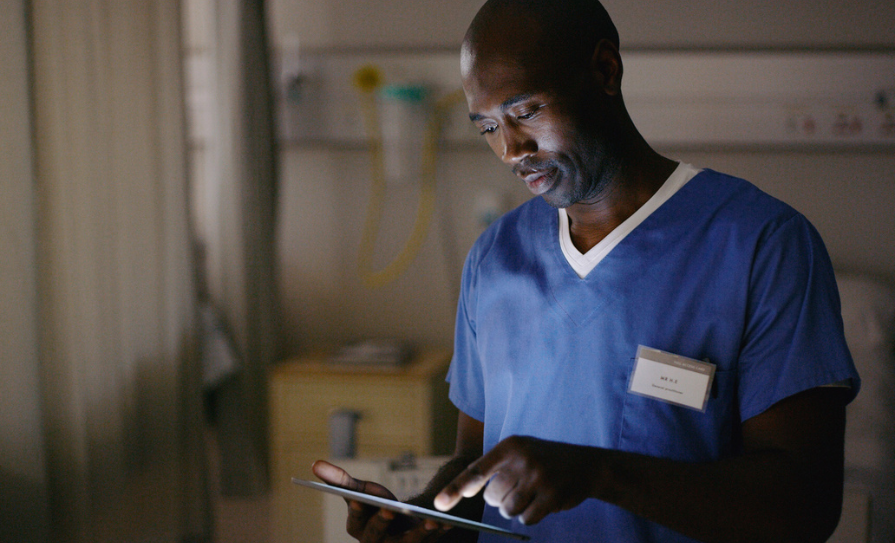In April 2023, Minster for Health Stephen Donnelly published the Terms of Reference for a strategic review of general practice. This review will “identify the challenges facing general practice in delivering a sustainable service into the future, and set out the actions necessary to address those challenges in the context of delivering on the principles of Sláintecare”. (DOH, 2023)
This review was developed to examine the contractual arrangement of GP services, to outline the challenges ahead in general practice, and to identify ways of meeting those challenges to deliver a sustainable GP service at community level. A project group was created to collect data, engage stakeholders, and prepare discussion papers across key areas, including GP training, GP capacity, and eHealth. There is particular reference to the general practice team, with a focus on the role of general practice nursing.
Therefore, we, your professional development coordinators (PDCGPN), put together a lengthy and comprehensive submission to the project group in order to ensure that the voice of general practice nursing was heard and included in the discussion and ongoing review.
What follows is a brief summary of our submission document, where I attempt to condense the content for easier consumption. If you would like to see a copy of the document in its entirety, please email me and I will be happy to forward it to you.
Challenges in general practice
General practice plays a pivotal role in the Irish healthcare system, acting as the first point of contact for patients and providing continuous, comprehensive care. In recent years, the Irish healthcare system has faced significant challenges, including an ageing population, rising chronic disease rates, and resource constraints. A strategic review of general practice in Ireland is essential to address these ongoing issues and develop a more effective and sustainable primary care system.
Despite of, or perhaps in response to, these mounting challenges, there are areas of focus in general practice that aim to build capacity and strengthen the discipline to meet the growing needs and demands. This strategic review, recent updates to GP contracts, and initiatives such as the Chronic Disease Management Programme aim to provide structured care and better coordination among healthcare providers, while developments in digital health technologies and telemedicine aim to increase accessibility and efficiency in primary care settings.
Overall, there is a strong emphasis on integrating multidisciplinary teams within general practices to enhance the management of chronic diseases and improve patient outcomes.
Nursing in general practice
In their 2022 discussion paper ‘Shaping the Future’, The Irish College of GPs (ICGP) proposed the doubling of the nursing workforce in general practice and has called for resources and supports on par with their nursing colleagues in secondary care. There is ample evidence to demonstrate that enhancing general practice nursing roles can help to fortify the discipline, provide essential support to GPs, reduce waiting times, and improve patient care.
The Report of the Expert Review Body on Nursing and Midwifery (Department of Health, 2022) made 47 recommendations to support the development of nursing and midwifery professions. The Implementation Action Groups, established in 2023, are managing implementation of these recommendations under several headings:
- Workforce;
- Education and professional development;
- Digital health;
- Governance and leadership structures.
This report is available at: https://www.gov.ie/en/publication/32783-report-of-the-expert-review-body-on-nursing-and-midwifery/.
Our submission to the strategic review provided an introduction to the PDCGPN role, detailing who we are and what we do, followed by an overview of general practice nursing in Ireland. This included its history, current numbers, regulations, and professional development challenges.
We highlighted the difficulties in maintaining competence and advancing practice, which are shaped by the absence of formal career pathways, academic requirements, and standard terms of employment – creating barriers to recruitment and retention.
We then illustrated the scope and complexity of the general practice nurse (GPN) role, covering the services provided within general practice. Enhanced roles such as medicinal product prescribing and the advanced nurse practitioner (ANP) were explored, along with public perceptions of general practice nursing within the general practice team and broader health services, especially within the enhanced community care model.
Recommendations for the future
Our recommendations to the strategic review working group focused on strengthening general practice nursing to meet the evolving needs of the population. We emphasised the importance of developing the GPN role as part of the future general practice team.
By investing in workforce development, expanding practice scope, fostering collaboration, leveraging technology, and ensuring quality and safety, we aim to empower GPNs to provide high-quality, patient-centred care. These recommendations seek to create a dynamic and supportive environment for GPNs, ultimately leading to improved patient health outcomes.
We looked at general practice nursing in both Irish and international contexts, and highlighted an overarching need for the development of a structured framework to support the role and ensure quality care delivery. We then made recommendations under three main headings:
- Workforce;
- Education;
- Safety, quality, and risk.
We recommended a definitive system for capturing accurate data in relation to GPN numbers, caseloads, clinical skills, and qualifications. We made a broad recommendation to increase numbers and scope of practice and welcomed the enhancement of the general practice team – allowing clinicians in practice to focus on clinical patient care.
We advocated for aligning general practice nursing in Ireland with international best practice, particularly in relation to minimum education requirements, funding for continuing professional development and postgraduate education, and additional funding for nurses working at an advanced practice level.
We suggested that future contract negotiations should include subsidies for education and training that are linked to nurses’ qualifications and experience levels. For nurses new to general practice, we emphasised the need for fundamental training and greater support as they progress from novice to expert.
We called for the development of general practice clinical placement opportunities for undergraduate student nurses to improve understanding of the clinical context of general practice, and advocated that existing GPNs receive access to supported mentorship and preceptorship training in order to optimise student experiences on such placements.
We recommended adopting the national Policy on the Development of Graduate to Advanced Nursing and Midwifery Practice (DOH, 2020) for general practice. This evidence-based approach would create a comprehensive framework to support high-quality, patient-centred care while advancing the role of nurses in primary care. A structured professional pathway — from novice to senior GPN to clinical nurse specialist — would foster continuous learning and adaptability, contributing to the professional growth of GPNs and care excellence for patients.
Additionally, we called for the development of standards and guidance for nursing in general practice. National standards, adapted for general practice settings, would benefit patients, GPNs, general practice, and the broader health service by enhancing the quality of care and recognising the unique nature of this care setting, where clinical governance remains with GPs.
We emphasised the importance of collaboration with GP colleagues and nursing bodies to strengthen networks that can help meet growing demands for high-quality community-based patient care. We also requested that our PDCGPN role be fully acknowledged and integrated within general practice and broader healthcare networks.
In line with expert review body recommendation 29, which advocates increasing PDCGPN posts, we suggested enhancing and resourcing the role to develop structured support programmes, including induction to advanced practice and tailored education where necessary.
Our final recommendation returned to the development of a professional framework for general practice nursing in Ireland. This framework would lay the foundation in improving the efficiency, effectiveness, and quality of care provided by GPNs. It should include considerations for staffing levels, workload distribution, and mechanisms to manage stress and burnout.
By adopting national policies, such as the one for the development of graduate to advanced practice, we can create supportive work environments that prioritise nurses’ wellbeing, aiding in the retention of skilled professionals. A professional framework would also enhance collaboration and coordination among healthcare providers, supporting a holistic, patient-centred approach to care and ensuring that GPNs can effectively contribute to the broader healthcare system.
Conclusion
While general practice in Ireland faces significant challenges, ongoing reforms and innovations offer a promising path towards enhancing the quality and delivery of primary care services. We recognise the importance of this review and the potential it holds for advancing general practice nursing. We welcome the opportunity to help secure the recognition and support needed for nurses to practise at the top of their license and further their careers in providing compassionate, effective patient care.
Our submission outlines the current state of general practice nursing in Ireland, identifies key challenges, and proposes solutions, including 11 recommendations, to strengthen this workforce and contribute meaningfully to integrated care and the priorities of the Sláintecare reform. The PDCGPN role is crucial in leading the implementation of these recommendations.
Our strong collaboration as a national PDC group, combined with our extensive experience in both general practice and the HSE, enables us to provide robust nursing and midwifery leadership and represent the general practice specialist nursing workforce at local, regional, and national levels. We are well-positioned to lead and manage the changes necessary to evolve general practice nursing in response to the growing demands of patient care in this care setting.













Leave a Reply
You must be logged in to post a comment.